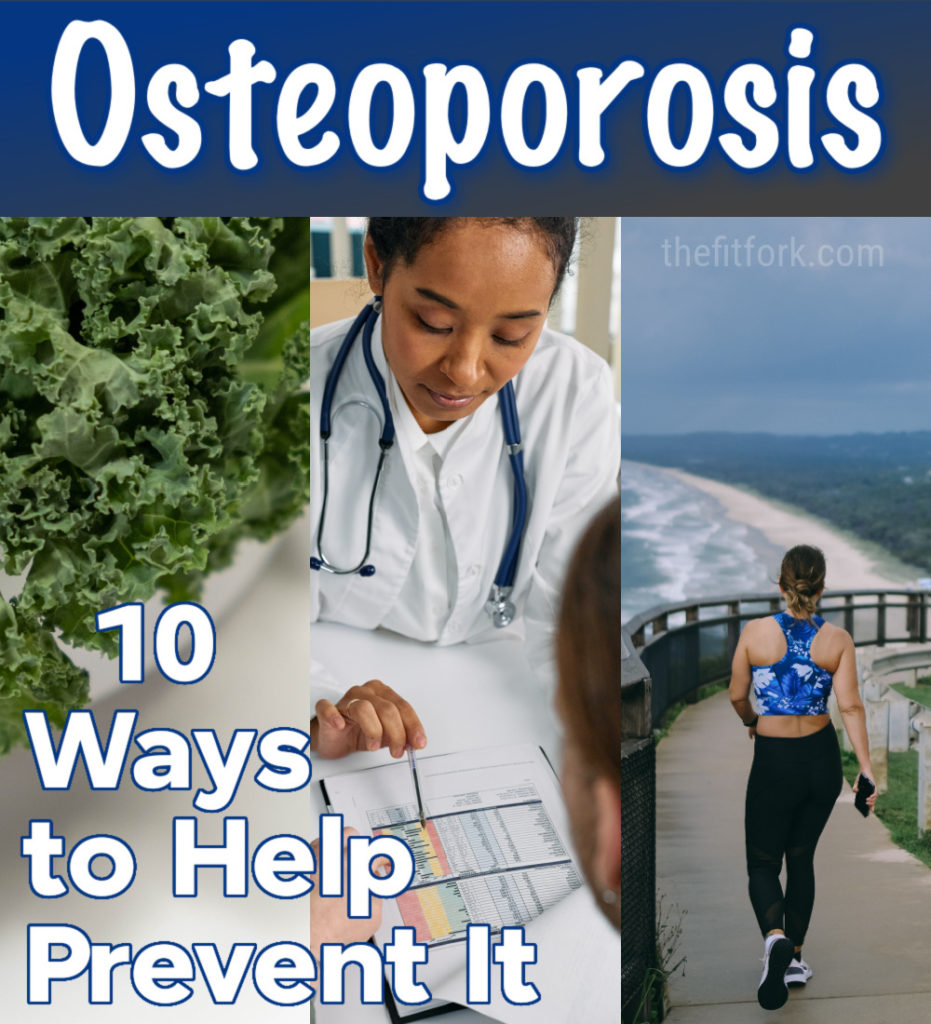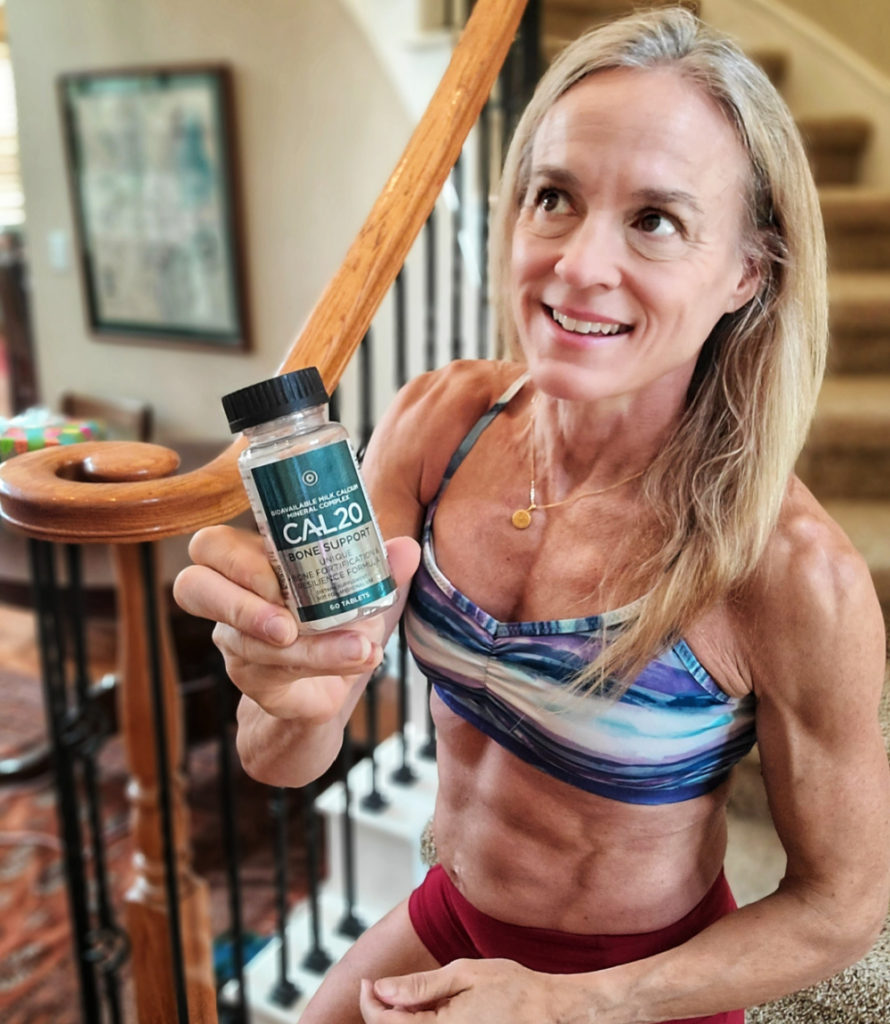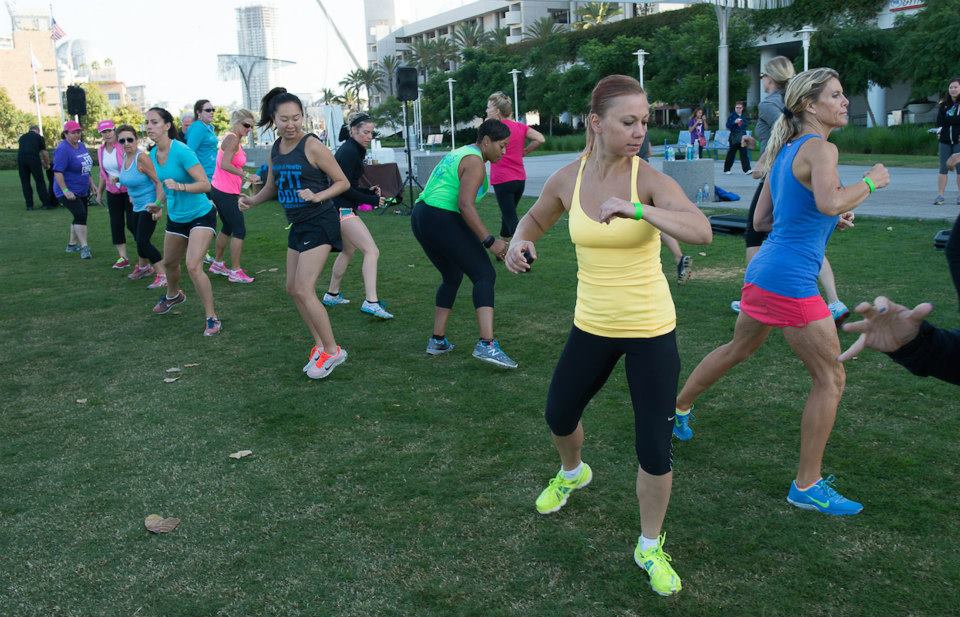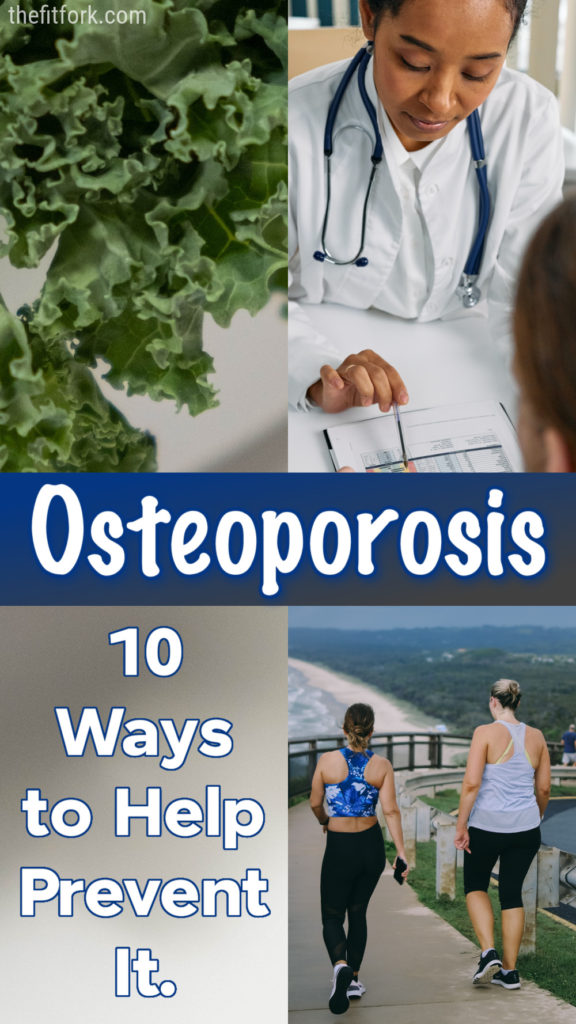Today I’m talking about the big “O” – and NOT the good one! Osteoporosis is a big concern for women as they age (and senior men, too), and for good reason. Osteoporosis makes bones thin and fragile, a result of hormonal changes (mainly the reduction of estrogen in women and testosterone in men), diet deficiencies, genetics, some medical conditions, and lifestyle choices.

Shockingly, it’s reported that 50 percent of women in the U.S. age over age 50 will suffer from an osteoporosis-related bone fracture. That’s bad news, as bone breaks are directly correlated with a poorer quality of life and shorter life span as we get older.
Although some osteoporosis risk factors are out of your control (like genetics, race, body frame size and medical conditions), there ARE many risk factors that can be easily controlled by your actions.
Ten actionable steps to help prevent osteoporosis.

Eat a Balanced & Varied Diet: The good news is that eating well should provide you at least a majority share of the nutrients you need maintain good bone health. You may still want to take a multi-vitamin and calcium supplement (see below). Calcium-rich foods, such as traditional dairy products, are high the calcium needed to maintain bone health. But there are plenty of plant, based options too, that are great for everyone. When shopping, it’s easy to remember “Greens and Beans.” Leafy greens (like spinach, kale and arugula) and other certain green veggies (like broccoli and Brussels sprouts) plus all sorts of beans, chickpeas, legumes and lentils are also winners. So are many ancient grains and many seafood proteins like shrimp and salmon.
*Women under 50 years old should consume 1000mg calcium per day, while women 51 and over should consume 1200mg
Avoid High Sodium Foods: Excess salt strips bones of calcium, so it’s a good idea to stay away from known high-sodium culprits like lunch meats, bacon and other cured deli items. Also watch out for too much salt in packaged foods like canned beans and soups, roasted nuts and other snack items that may seem healthy, but really have too much salt. Also, pretty much everything eaten from a restraint menu is shockingly high sodium – most dining establishments can provide a nutrition facts menu if requested so you can make the best choice and/or prepare your food without salt.
*People with or considered at risk of osteoporosis should ensure that they keep their salt intake below the recommended maximum of 6g.
Stop Sucking Down So Many Sodas: Most carbonated soft drinks and certain other sparkling beverages contain phosphoric acid (not to be confused with phosphorus which you need for bone health). Phosphoric acid can have negative consequences on bone density. This is not to say you can’t enjoy the occasional refreshment, especially if your calcium intake is on point. But it’s best to be mindful of intake and look for healthier alternatives when possible. Read labels and look for carbonated sparkling drinks that do NOT contain phosphoric acid– there are more and more healthier options becoming available.

Cut Back on Caffeine Intake: Most of us love our caffeine, but that bolt of energy can come with a cost – harm to bones. Too much caffeine consumption leaches minerals from your bones. However, reports say that that consuming adequate calcium through your diet or supplementation will help offset impending bone density loss but for up to about 300mg caffeine daily (about 2 coffees or one high-caffeine energy drink). So – yeah, enjoy a little – but not a lot! An option I like to cut back is to use a half-caff coffee!
*Limit caffeine to 300mg per day, or less.

Consider Calcium Supplements: Even with best efforts, it’s sometimes hard to get enough calcium through diet alone – the craziness of life sometimes gets in the way. That’s why it’s a good idea to consider a calcium supplement so that you are meeting your daily calcium target – 1000mg for women under 50 and 1200mg for women 51 and older. This is an important “insurance” step in my osteoporosis prevention strategy.
However, not all calcium supplements are created the same. Traditional calcium supplements are made from calcium carbonate which as a very low absorption rate (as low as 2%). Thankfully, there are better options – like the CAL20 that I take. CAL20 is a low-dose, bioavailable natural milk calcium mineral complex that improves calcium uptake (nearly 100% bioavailable) to improve bone density. Other good things about CAL20 are that it’ has 200iu of Vitamin D which helps deliver the calcium into bones – and it also is the only calcium supplement made with a probiotic to help with digestion and absorption.

I invite you to check out this CAL20 supplement, that is natural, proven effective and has no reported side effects during clinical trials. I even have a discount code – use JENNIFER10 to save 10%.
Double Check Your Vitamin D – As mention about, vitamin D helps the body absorb calcium and phosphorus from the food you eat, making it an important vitamin for those at risk of osteoporosis. Studies show that calcium and vitamin D together can build stronger bones in women after menopause. You could be getting some vitamin D from sun exposure and diet, but many of us fall short of meeting our daily requirement.
*Minimum daily recommendations for Vitamin D are 600 IU for those under 70 years old and 800 IU for those over 70. The CAL20 calcium supplement I recommend offers 200 IU.

Weight-Bearing Exercise on a Consistent Basis: Walking, jogging, dance class, boot camp, light strength and resistance training with weights, bands or bodyweight. Whatever you like! You don’t have to be a hardcore athlete, just get moving some. Even getting up from your desk to stand up and do some work helps, taking the stairs, or parking at the far end of the parking lot helps – little changes can add up to big improvements.
*Aim for 30 minutes of weight-bearing exercise per day. But, even if it’s less, it’s still helpful. University of Michigan researchers found that as little as 15-20 minutes of weight-bearing exercise, three days a week was sufficient for building bone density.
Don’t Smoke and Limit Drinking Alcohol: really good choices for a healthy life all around – including bone health – and also help lessen the incidence so many chronic diseases and certain cancers.
Consult With Your Doctor: Consult with a trusted medical professional before changing your dietary patterns and exercise routine and to also triage your personal risk-factors for osteoporosis and develop a strategy for optimal bone health.

Note: This website provides general information about health and wellness topics. The information and other content provided herein, or in any linked materials, are not intended and should not be considered, or used as a substitute for, medical advice, diagnosis or treatment. This blog does not constitute the practice of any medical, nursing or other professional health care advice, diagnosis or treatment. This blog cannot diagnose conditions, provide second opinions or make specific treatment recommendations through this blog or website. Please visit with your medical professional for a one-on-one consultation.
